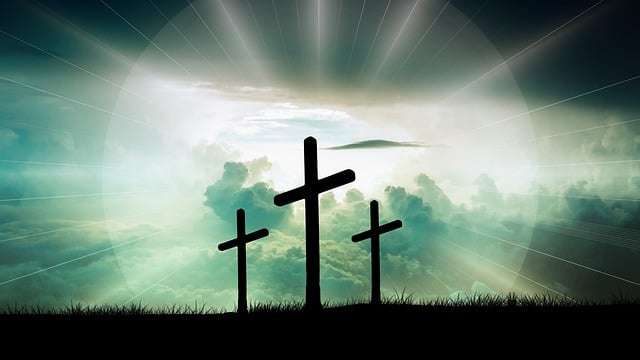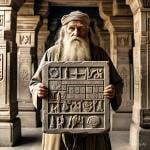
THE RELIGION GUY’S ANSWER:
A highly readable new book provides the latest example of such a timely seasonal quest. The author, Ross Douthat, is a sophisticated New York Times columnist and former senior editor of The Atlantic magazine. In his intriguing “Believe: Why Everyone Should Be Religious,” Zondervan mostly prods people to consider the value of belief in general rather than Christianity in particular, building the case upon up-to-date scientific knowledge.
He figures that “the raw data of existence implies religious obligations and matches up to religious assumptions” and what we all experience. The data demonstrate nature as remarkably poised to produce the human species, in a universe “both made and made for us, that the human mind seems to have a cosmic purpose, that spiritual and supernatural realities seem to impinge constantly on our own.” And so forth.
It’s the most engaging popular-level argument in many years for why it’s perfectly reasonable to believe in a religion in these modern times, whatever one’s religious choice might be.
A convert’s tale
However, at the very end, he candidly switches from respectful discussion of all major religions into a specific “case study,” his own Christian faith. After depicting his Protestant boyhood and adult conversion to traditional Catholicism, he asserts that Christianity is not just “pointing toward God” but “actually true.” He ponders the heart of the Christian story, what Jesus Christ’s death on the cross might mean these 2,000 years later, and why people can still believe in the Easter miracle of his bodily resurrection from the dead. “When I say the Nicene Creed I mean it,” he says, including its profession, 1,700 years old this year, that “on the third day he rose again in fulfillment of the Scriptures.”
That Jesus was a revered spiritual teacher who was crucified is as well-established as any event in ancient times could be. But there are long-running academic efforts to raise doubts not only about his resurrection from the grave but many other events and sayings recorded in the New Testament. Douthat is well aware of these arguments, but not impressed. They are “founded on sand,” he insists. As with his case for belief in general, the approach is not that of a preacher or theologian but a journalist, assessing the available evidence – the four Gospels –and what conclusions are the most plausible.
The book does not align with conservative evangelicals who believe the biblical texts were error-free (“inerrant”) in their original written form because God-inspired writers would not have made mistakes, even on historical details. You’ll find definitive statements of that viewpoint here.
Douthat freely admits that there are “various tensions between the four Gospels,” but defends their “basic historicity” as “remarkably credible” source material. He is struck by their “immediacy and intimacy” and “the unsanded roughness of their portrayals” that have not been smoothed out to remove all complications and contradictions.
Detectives and reporters
Any detective at a crime scene, or reporter covering a breaking news event, can affirm Douthat’s outlook: “The variations in which day a particular event took place, who was present for a given miracle, which exact words someone used, are precisely what you’d expect from a collection of authentic testimonies that weren’t smoothed out into propaganda. Likewise for all the difficult sayings and ambiguous teachings that Christians and skeptics have been wrangling over ever since.”
He cites the Scriptures’ “proximity to the events described” (reaching final written form some decades afterward), “their claim to be eyewitness accounts,” and “their credibility relative to the various ‘lost gospels’ ” that the early church judged as too late and inauthentic to belong in the New Testament though championed by some liberal scholars.
With Jesus dead and entombed, that would seem to have crushed his movement. That “makes whatever happened to the disciples in the days after the crucifixion one of the most striking psychological events in the history of movements and ideas,” the conviction that he arose bodily. For Douthat, the logical conclusion is the simplest, that “the resurrection really happened, that here God intervened in human affairs decisively, that this is the defining revelation of His purposes.” Only a couple decades later, Paul would report that the resurrected Jesus was seen by the apostles and “500 brethren at one time, most of whom are still alive” (I Corinthians 15:3-8). This belief, Douthat says, “was somehow perfectly designed to transform the Roman world and spread around the globe.”
The crucifixion may be an undoubted fact, but how do we understand its saving power today? Douthat’s personal interpretation gains depth from his own years of continual pain that doctors were unable to diagnose or alleviate. “With Christianity, we are told that God Himself is on that cross, and through the cross, He is with us also, in all our suffering and to the end of time. And with that movement comes one possible answer to some of the hardest questions people have about God’s distance, God’s silence, the problem of evil, and the problem of sin – not in the form of a logical proof but as a story, an event, a person who also happened to be God.”
And there’s more
To think all of this through more thoroughly, Douthat recommends pertinent writings of three British scholars: “Jesus and the Eyewitnesses” by Richard Bauckham, now retired from the University of St Andrews; “Can We Trust the Gospels?” by Peter J. Williams of the Tyndale House biblical think tank in Cambridge; and varied works of professor and Anglican Bishop N.T. Wright, including (for ambitious readers) the 740-page magnum opus “The Resurrection of the Son of God.”











